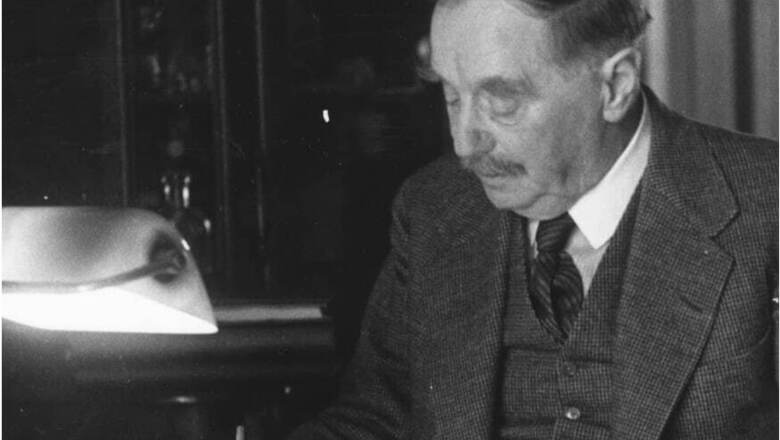
views
The 'father of science fiction' along with Jules Verne and Hugo Gernsback, Herbert George Wells or HG Wells was born on September 21, 1866. Best remembered for his science fiction novels he was one of the most prominent forward-looking and prophetic social critics, he wrote a number of utopian works and foresaw the advent of aircraft, tanks, space travel, nuclear weapons, satellite television and something akin to a World Wide Web. The works of Wells include scientific romances, realistic pieces as well as short stories and novellas.
On the author's 153 birth anniversary, here's looking at his novels one must read.
The Time Machine (1895): Written as a frame narrative, the novel made popular the concept of time travel by using a device to travel purposely and selectively forward or backward through time. It was Wells who coined the term 'time machine'.
The Invisible Man (1897): A story about Griffin, a scientist who devoted himself to research into optics and invented a way to change a body's refractive index to that of air so that it neither absorbs nor reflects light and thus becomes invisible, the book became a horror fiction classic over the years.
The First Men in the Moon (1901): The novel tells the story of a journey to the Moon undertaken by the two protagonists. The two discover that the Moon is inhabited by a sophisticated extraterrestrial civilization of insect-like creatures called "Selenites".
Anticipations (1901): A non-fiction, the work saw Wells telling readers they were living through a reorganization of human society that would alter every dimension of life, based on the 'mechanical revolution' of the time.
The Food of the Gods and How It Came to Earth (1904): The science fiction work is about a group of scientists who invent a food that accelerates the growth of children and turns them into giants when they become adults. The book is divided into three sections and has been adapted into movies multiple times.
A Modern Utopia (1905): The novel sees two travelers falling into a space-warp, who suddenly find themselves upon a Utopian Earth controlled by a single World Government. The novel is best known for forwarding the notion that a voluntary order of nobility known as the Samurai could effectively rule the world to solve the problem of combining progression with political stability.
The Sleeper Awakes (1910): The dystopian science fiction novel is about a man who sleeps 203 years, waking up in a completely transformed London in which he has become the richest man in the world. The short story "A Story of the Days To Come" (1897) is a forerunner of the novel, being a tale set within the same future society.
Follow @News18Movies for more




















Comments
0 comment